
Xiao Hong is a 2.5-year-old girl, There have been varying degrees of convulsions lately, This alerted parents. After several rounds of turnover, diagnosis and treatment in the hospital, The doctor concluded that it was Tourette’s syndrome. The reason surprised both husband and wife even more. It turned out that both husband and wife, especially their mother, were very hot-tempered and often got angry because of some small things. If the child was wrong, he would be scolded. If he was done well, he would also be said because his mother was in a bad mood.
As the first feeder of the child and the person who comes into contact with the child for the first time in his life, the emotion expressed by the mother to the child will directly affect the psychological and even physiological development of the child in the early stage. The responsibility borne by the mother is far more important than we think.
If this does not allow you to directly feel the relationship between emotions and children. Then, the following famous experiment will give you a personal experience of how much the mother’s emotions affect the children.
[Static Face Experiment] Tell Us what?
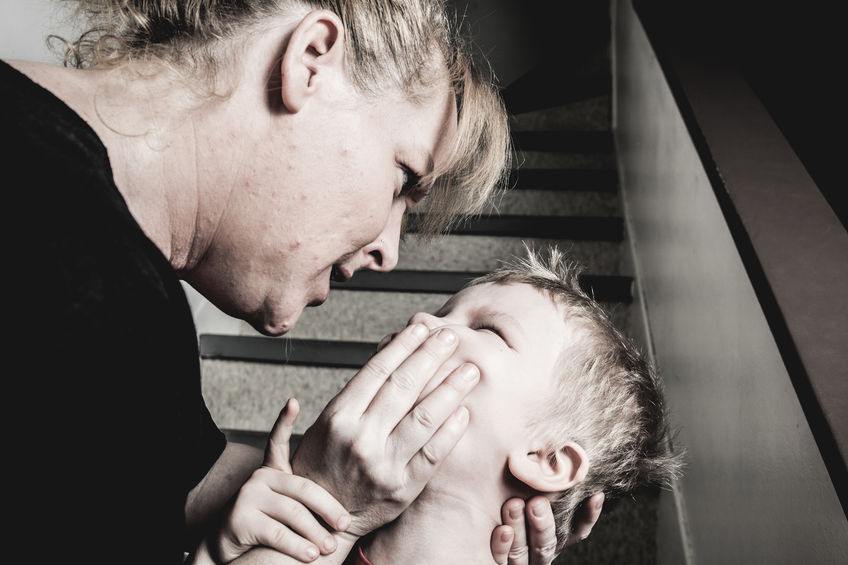
Ed Tronik, a psychology professor at Manchester University, once did a famous experiment. He asked a mother to interact with her child first, and the child was very happy and responsive. Then he asked the mother to change into a expressionless face. No matter what the child how did, the mother remained expressionless.
The following is a screenshot of the experiment:
1. Before the experiment began, the mother and the child interacted normally, and the child was in a good mood and responded positively.
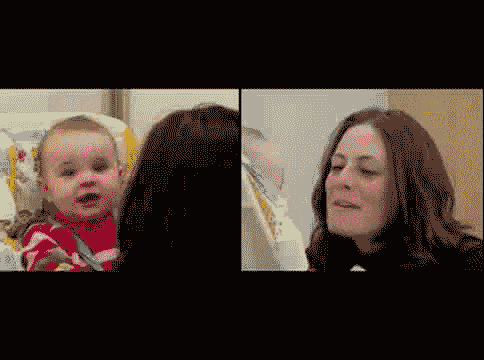
2. After the experiment began, the mother was expressionless, and the child quickly noticed the change and wanted to attract the mother’s attention.
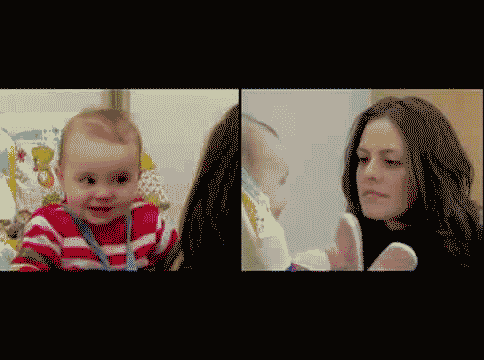
3. The child continues to interact with the mother. If she wants feedback, the mother is still expressionless.
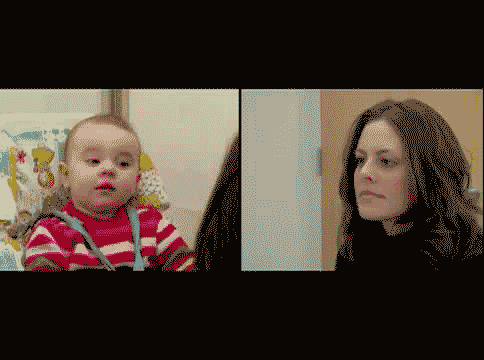
4. At the end of the experiment, the child collapsed and began to cry.
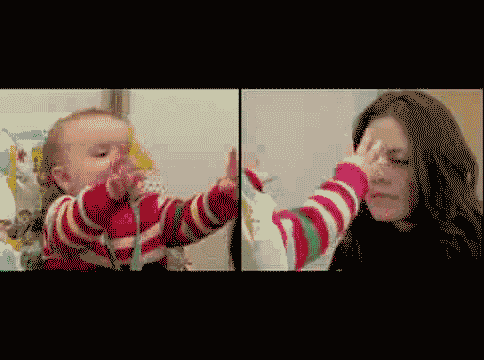
A short video, there are many places worth analyzing:
1. Babies are already sensitive to expressions, feedback and the surrounding world when they are so young.
2. Babies will use various methods to regain their mother’s attention (feedback).
3. Without feedback for less than 2 minutes, the baby will have many negative emotional behavioral reactions.
4. In the experiment, it can be found that the baby’s mood changes with the mother. In other words, the child will actively imitate the mother’s behavior or even emotion. Children look up at their own mother and see themselves in her eyes.
Mother means what to her child.

Does mother mean what to children? It is very important for parents to establish a good attachment relationship with them during the period of 0-3 years old. Without this stable attachment relationship, children will feel panic and fear. Establishing a relationship with adults is also one of the most critical and earliest tasks in children’s childhood. Therefore, mothers often mean to children:
1. The earliest and most authoritative emotional mentor. Children will imitate their mothers’ emotions and behaviors and learn how to control their emotions. If their mothers’ emotions are more likely to be anxious, uneasy or out of control, their own emotions will not be very stable.
2. An irreplaceable source of security. Early attachment is an important source for children to acquire external security awareness. In other words, children’s security basically comes from the stable attachment relationship established by their mothers in the early stage.
The mother is the child’s mirror. If the child can see how popular he is from the mother’s mirror, this is the greatest gift the mother gives the child.
What children fear most is their mother’s disregard for themselves.
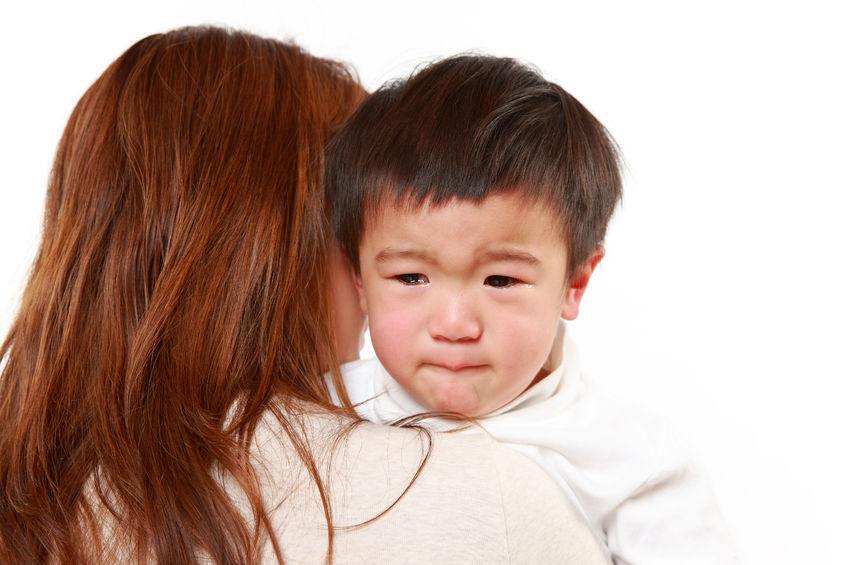
1. Refusal can lead to wrong behavior habits.
In the process of being rejected, The baby uses inappropriate behaviors such as screaming, scratching and swinging to arouse the mother’s attention. If the mother reacts positively, It is tantamount to telling the baby that these behaviors can win the attention of the mother. Then the baby will repeat this behavior next time. However, this kind of behavior is destructive, which will make him take destructive behavior habits such as crying, shouting and grasping when he is neglected in the future (or in other neglected scenes), and cannot form an effective sense of security, let alone learn personality qualities such as persistence and waiting.
2. Emotional matters are no small matter. Ignoring them brings infinite disappointment.
If the still face is allowed to last longer, the indifference and refusal will continue. The child is tired from crying and no longer cries. Is this scene familiar? Isn’t this the oral method of “stop crying when you are tired of crying”? And we can also see from the process of this experiment, The [calm] obtained after refusing to deal with indifference is only a disappointment after the failure of the mother’s connection demand. However, this disappointment is likely to spread in the children’s life in the future, thus forming an unsafe attachment relationship, which will gradually change the children from being rejected and ignored to rejecting this [unsafe] world, ignoring the psychological feelings of others, and affecting the development of their interpersonal relationships in the future.
3. Even the smallest neglect is irreversible damage.
Fully accepting children’s feelings and keeping their emotions stable are the cheapest ways of education. Those who have selectively perfunctory, ignored or deliberately refused, It will also destroy the inner security and order of young children. For children who are still in the imitation stage, Imitation of [refusal], [perfunctory] and [neglect] in this kind of interpersonal communication will also affect their personality development in the future. This is why their children learn to [deal with] parents at an early age. This is not learning but an indiscriminate imitation or even an accusation.
Call for a timely response and do not ignore children’s emotional changes.

Difficulty 1: Sometimes it’s really annoying. Children can’t beat or scold if they do something wrong. I can’t even ignore him?
Solution: For children aged 0-3, Their exploration of the outside world is felt through imitation and learning in their relationship with their mother. In other words, When doing something wrong, the child chooses to ignore the behavior, which will make the child think [can’t do something wrong] with the fear, uneasiness and anxiety when being neglected, thus worrying more and more about the right and wrong of things in the future life, rather than curiosity and interest.
Therefore, non-response may be the worst of these treatment methods. On the contrary, it is a good choice to punish systematically.
1. Remedial sexual punishment. When a child makes a mistake, you can let the child remedy his own mistakes. For example, messy books can leave books that he can put back to handle by himself. On the one hand, you can avoid direct emotional contact with the child, on the other hand, you can also let the child understand the meaning of punishment.
2. Punishment on a case-by-case basis. Perhaps you have your own set of effective punishment methods, then you only need to ensure that you can be on a case-by-case basis when punishing, and do not make all mistakes in the same punishment method, which conforms to the principles formulated by yourself and your children.

Difficulty 2: I am very busy and have no time to constantly respond to my children.
Solution: If you cannot give a timely response, you should give timely remedies to the emotional problems caused by missing the response, so as not to make the child feel that your mother does not love you.
If you have to work during the day, Only at night can we see the children, Then please do your best to have parent-child activities with your children when you return home. Please remember here that if you are really tired. Then please spare less time to accompany your child, and then tell the child [Mom is very tired today, wants to rest with you, tomorrow weekend night (must be the time that can be cashed in) to accompany you to play XX (something the child likes), ok? ] If the child agrees, please be sure to tell the child [Mom thanks for your understanding, today the baby has learned to understand, understand and care about the mother] to positively strengthen the correctness of this behavior.
Raising children is probably the most difficult thing in the world. Let everything change almost overnight. But at the same time, although it is hard, if you change the angle, raising children is equal to raising oneself, and growing up with children will be happier. And even when you are pleased with the growth of your children, you will find that you have become better than before, and you have completed the growth with your children.
